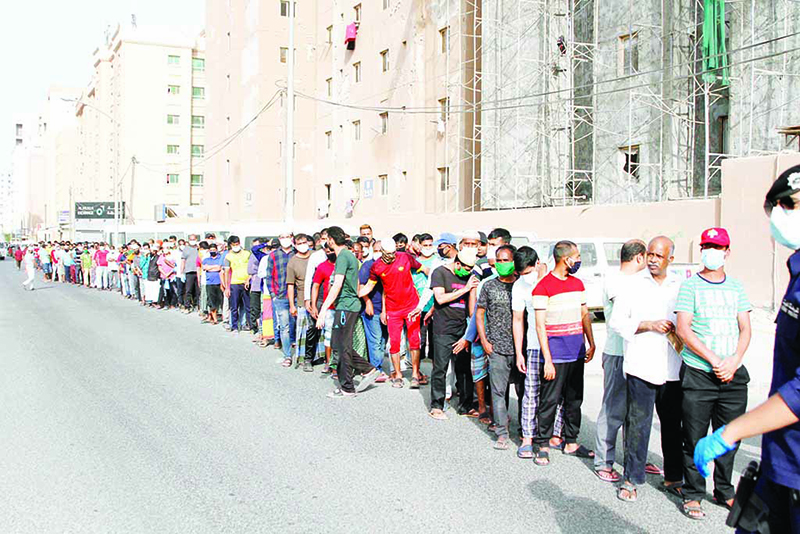
By Ben Garcia
KUWAIT: The Philippine Embassy in Kuwait has revealed that more than 25,075 Filipinos have lost their jobs or left Kuwait as a result of the coronavirus pandemic. Exact numbers of those who have lost their jobs permanently or temporarily and who have left Kuwait for good are not available. The embassy is unable to determine how many may have lost their jobs but remain in Kuwait, looking for new employment.
“We’ve got the number of unemployed Filipinos based on the number of applications for cash assistance, an aid program organized by the Philippine’s Department of Labor and Employment (DOLE) to Filipinos who were abandoned by their employers,” an official at the embassy told Kuwait Times. The official did not want to be named.
Of the more than 25,000 Filipino nationals in Kuwait who sought financial assistance from the DOLE, a total of 19,587 were approved and received aid. “The cash assistance being handed over by DOLE is worth KD 60 ($200) each and the distribution continues as we speak,” he said. “Until now there are Filipinos who aren’t back at work and those that have no work are still being assisted by the embassy through food packs,” he added.
Financial woes
After more than five months of the coronavirus pandemic, many private sector companies in Kuwait have laid off staff or cut salaries. Early estimates from March and April suggested that as many as 250,000 expatriates had lost their salaries or income. Though the economy has begun to reopen with the move to phase two and now phase three of Kuwait’s resumption of public life, many private sector businesses - and by extension their employees - remain financially strapped.
“I worked for four years in a company, and during the lockdown, many of us were called by the human resource department of our company. We expected to receive some cash assistance because of the lockdown, but we were wrong. We were called to receive a termination letter. We were about 50 people in the company who were called just to receive the letter,” one Filipino worker said.
Kuwait Times asked if he wished to continue working in Kuwait by seeking other employment. “Yes, but my problem is my visa. It’s article 18 but under a government project, and according to them, it’s non-transferable. It means we need to go back to our country and return if we want to continue working in Kuwait. I want to stay because my mother is here and I want to be with her. But because of the restrictions, I have no choice but to return to the Philippines,” he said.
“Many of us are working for government projects and our company is included, I heard,” he rued. “It was the hardest chapter of my life because we all come to work and are doing our best to showcase our skills in the job. Unfortunately, COVID-19 happened and suddenly we are all affected,” he said.
‘Everything closed’
Another terminated barista said his company decided to close the coffee shop in March due to lack of customers. “We closed on March 1. We were given time by our employer to look for another job so he could transfer the visa. But at that time, everything was closed - Kuwait imposed curfews and lockdowns. So I stayed at home with a friend. I am not paying anything and he said he will do so until everything is settled and I get a job.
I know the situation is really very hard now, but we cannot do anything. Even going home costs KD 300 for a one-way plane ticket,” he said. The most affected workers within the Filipino communities are those working in salons, barbershops and spas, as well as tailors and those connected to mass transportation (bus drivers) - all of these businesses remain closed.
“Until now we do not have work at the salon. We cannot provide home service as well because houses are prohibiting visitors. Our shop is closed and I don’t know if they are going to reopen even when salons will be allowed to reopen, because our employer hasn’t communicated with us since we closed our shop,” salon worker Dina told Kuwait Times. “I am still surviving because my flat mates are working in the hospital and they are bringing food, and sometimes we get aid from organizations or the government,” she added.
.jpg)
